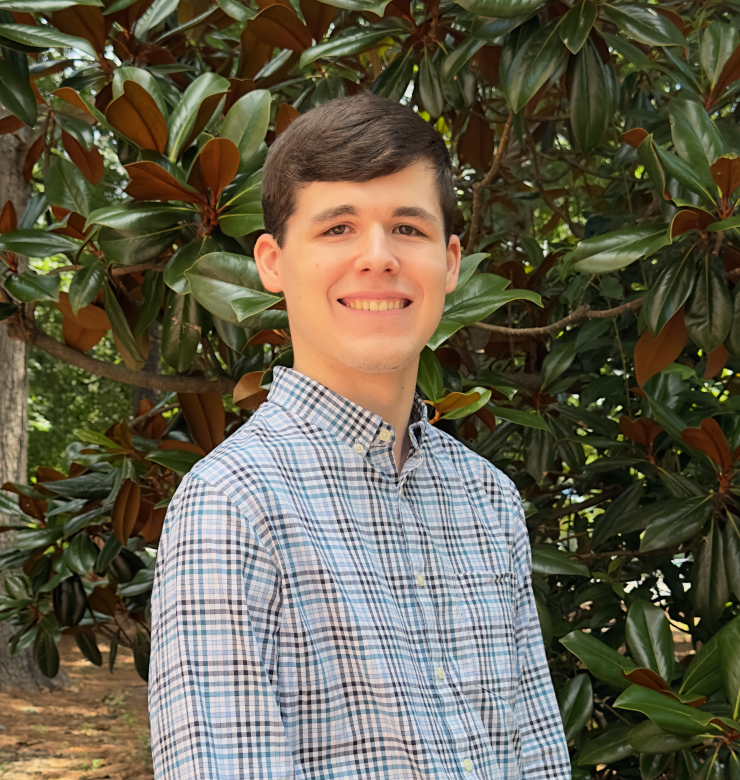Aidan Hunt has been interested in finance ever since he was a child, when he would borrow tax-related instruction booklets from the library, before e-filing became common.
To Hunt, accounting is a well-oiled system that requires accountants to factor thousands of different scenarios into reaching a solution, and his interest in the complexity of the procedure-based field led him to apply to the IRS Advisory Council. In January, at the age of 20, he became the first student to ever be appointed since the committee's creation in 1953.
"I hope this will be a demonstration to the IRS, and hopefully other federal agencies, of what benefits could result from including younger people in these groups," said Hunt. "In the way the IRS Advisory Council is structured, anyone's free to apply and make their argument as to what perspective they can bring to the committee. Other organizations like the Food and Drug Administration have public representatives, but they typically expect you to be someone from a recognized agency."
Hunt, now 21, heard about the opening through his activities as a
In his application, he referred to the IRSAC's

Five times a year, Hunt will convene with the 32 other members of the advisory council, who come from multiple backgrounds and areas of expertise, to hear from various leaders and make informal suggestions. However, their primary work is to create an annual report that's published in November after their final meeting. Before that deadline, members split into five different subgroups to focus on various issues, which can be suggested by a member but are often proposed by the IRS division overseeing the topic at hand.
Throughout the process, members hold meetings with experts working on their relevant topics and write recommendations that are sent to the entire committee for approval in September, before the report is published in November. With only a couple of hours of meetings with the IRS to reach a solution, Hunt said it's sometimes challenging to make truly satisfying recommendations in such a short timeframe, but the support of his fellow members has been helpful for remaining effective.
"You have people who've worked for large companies, small companies, state governments, which gives a great wealth of information," he said. "That's why I believe we need to aggressively recruit from high schools and universities and make them aware of the opportunities available in federal agencies, even beyond accounting. I know it's one of the specialties the IRS needs most, but when you're talking about recruitment, we need all of those profiles, from legal services to facilities and customer service."
Shortages in staff and funding do place limits on "dream solutions," according to Hunt, as the IRS doesn't always have the means to approve its advisors' recommendations. Hiring enough people may become even more of a concern soon.
Last year, Republicans and Democrats clashed over a 2021 Treasury Department
Another problem in recruiting comes with the perceptions of federal government jobs and of the agency itself. According to Hunt, the IRS has become an "adversary" in people's minds, a distant entity that just tries to get as much money as possible. But they don't have a clear understanding of what the agency stands for: He said that if there was greater awareness about federal careers, especially the IRS's role in enforcing the laws to collect the correct amount of taxes and improving the efficiency of the government, citizens might not be so fearful of what they represent.

"We need to work on education to give taxpayers autonomy by allowing them to understand how something is treated for tax purposes," Hunt explained. "If you don't understand the way driving for Uber is taxed, for example, you're going to have a hard time figuring out whether it's profitable, or how much money you're actually making. We also need to continue educating people about big topics, such as the new Form 1099-K reporting threshold for online marketplaces for them to make informed decisions."
Now freshly graduated from the University of North Carolina at Chapel Hill with a degree in computer science and linguistics, Hunt hopes to work with the government with a focus on accounting and financial infrastructures. Currently working as an ITS security intern with his former university, Hunt will continue assisting his fellow students and professors while he looks for a permanent job.
"One of the benefits you get by working in the government is that you're helping build and maintain the services that the rest of society relies on, because those are the core institutions that are essential to keep the country running," said Hunt. "There's just a wealth of these types of opportunities where you don't have to run for office and do a big campaign, but where it's as simple as sending an application."
Hunt truly believes that more people his age should apply for these kinds of positions.
"I really encourage college students to consider working for the government and not be afraid to apply for citizen committees or advisory boards," he said. "You have these at every level of government, with federal advisory committees, city councils, state boards and commissions. Going out there and applying costs nothing, and you can always find something you're interested in while contributing to your community."





